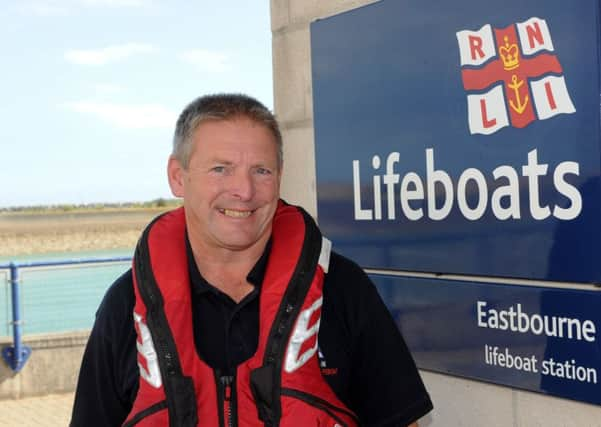Eastbourne lifeboat boss urges caution in the water


According to official statistics released by the Royal National Lifeboat Institute, more people die at the south east coast during the busy summer months of June, July and August than at any other time of year.
And with the summer holidays well under way, research from the lifesaving charity shows fewer than a quarter of people in the region say they would call 999 immediately to request help if they saw someone fall into open water.
Advertisement
Hide AdAdvertisement
Hide AdThe data has led to a warning from the coxswain of the Eastbourne all-weather lifeboat Diamond Jubilee, Mark Sawyer, for people to dial 999 and ask for the coastguard in the event of an emergency at the coast.
Over the past five years, there have been 65 deaths on the south east coast.
As part of the RNLI’s drowning prevention campaign, Respect the Water, Mr Sawyer is calling on the public to help save more lives by remembering and sharing key survival skills.
He said, “With summer holidays upon us and hopefully some hot weather, our fantastic beaches are naturally a draw for many people – but sadly this also means more people tragically losing their lives or getting into serious danger at the coast.
Advertisement
Hide AdAdvertisement
Hide Ad“We need to start a national conversation that encourages people to fight their instincts around water, so we are asking people to remember and share two skills. The first is, if you see someone else in trouble, don’t go into the water yourself as you may also end up in serious danger. Instead, dial 999 and ask for the coastguard.
“The second is, if you fall into cold water, fight your instincts to swim hard or thrash about as this could lead to drowning. Instead, relax and float on your back, keeping your airway clear, for around 60–90 seconds. This will allow the effects of cold water shock to pass so you can regain control of your breathing and then swim to safety or call for help. Just remembering these two simple points could help save your life, or someone else’s, this summer.”
This is also the busiest time of year for the RNLI’s lifesavers overall. Last summer, the charity’s lifeboat crews in the south east launched their lifeboats in response to 625 emergencies, nearly half of their total call-outs for the year.
Meanwhile, RNLI lifeguards in the region responded to 1,252 incidents on beaches during June, July and August.